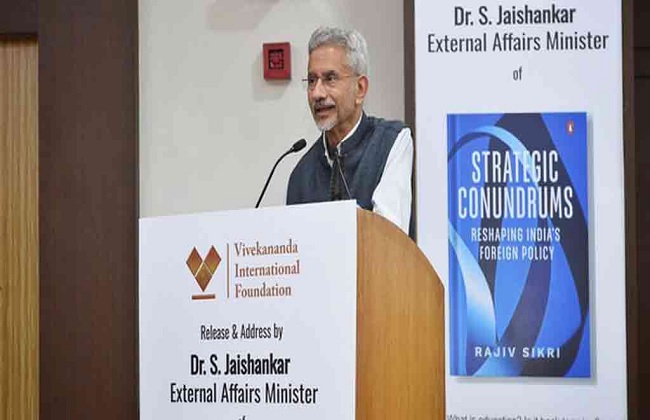
India’s External Affairs Minister S Jaishankar has emphasised that India will engage with “the government of the day” in Bangladesh and will try to identify and pursue areas of mutual interest.
He made the comments during the launch event for Ambassador Rajiv Sikri’s new book, “Strategic Conundrums: Reshaping India’s Foreign Policy,” on Friday, according to a report by the news agency ANI.
Addressing the gathering, Jaishankar highlighted the fluctuating nature of India’s relationship with Bangladesh since its independence.
He noted that while it is natural for India to engage with the “government of the day,” it is also crucial to acknowledge that political transitions in Bangladesh can be disruptive.
“Since Bangladesh’s independence, our relationship has gone up and down, and it is natural that we will deal with the government of the day. But we also have to recognise that there are political changes, and they can be disruptive. And clearly here we have to look for mutuality of interest,” Jaishankar added.
His remarks underscore India’s strategic approach towards its ties with Bangladesh, aiming to foster stability and cooperation despite potential political shifts in Dhaka.
On Aug 5, the 15-year rule of the Awami League in Bangladesh came to an end due to intense student and public protests. The party’s President Sheikh Hasina resigned from her position as prime minister and fled to India.
There have been growing demands in Bangladesh for Hasina’s return so that she can face trial.
Earlier, on Aug 17, during a phone call with India’s Prime Minister Narendra Modi, Chief Advisor Muhammad Yunus assured him of full security for Hindus and other minorities in Bangladesh.
At that time, Modi mentioned in a post on social media platform X that he had discussed the “prevailing situation” with Yunus.
“Reiterated India’s support for a democratic, stable, peaceful and progressive Bangladesh. He (Yunus) assured protection, safety and security of Hindus and all minorities in Bangladesh,” Modi wrote.

